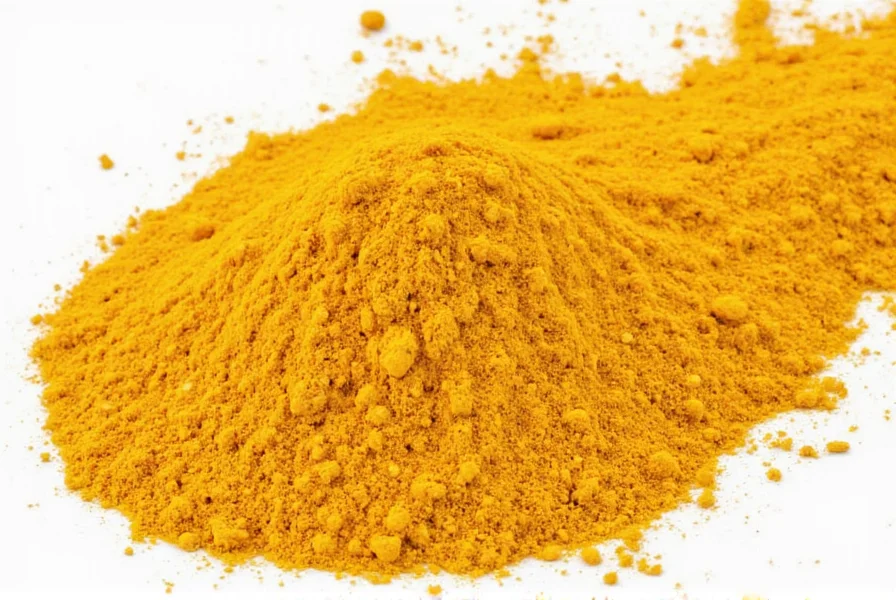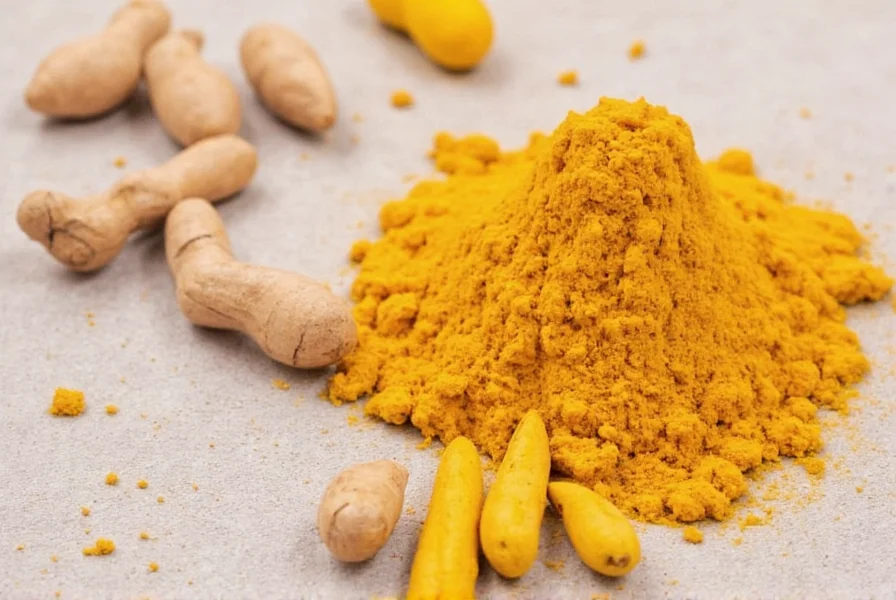For centuries, turmeric has been celebrated in traditional medicine for its anti-inflammatory properties and potential health benefits. As this golden spice gained popularity in Western wellness circles, questions emerged about its safety profile, particularly regarding liver health. Understanding the relationship between turmeric and liver function requires examining both its potential protective effects and rare adverse reactions.
The Dual Nature of Turmeric and Liver Health
Turmeric contains curcumin, its primary active compound, which demonstrates antioxidant and anti-inflammatory properties that may actually support liver health under normal circumstances. Research suggests curcumin could help protect against liver damage from toxins and reduce inflammation in non-alcoholic fatty liver disease. However, the relationship isn't entirely straightforward.
While culinary use of turmeric (approximately 1-3 grams daily as part of cooking) presents minimal risk, concentrated supplements containing 500-2,000 mg of curcumin daily have been associated with isolated cases of liver injury. This paradox—where a substance can both protect and potentially harm the same organ—highlights the importance of dosage and individual factors.
Scientific Evidence on Turmeric and Liver Function
A comprehensive review published in Food and Chemical Toxicology examined multiple studies on curcumin safety. The analysis concluded that curcumin has 'an excellent safety profile' at typical dietary levels, with no significant liver toxicity observed in numerous clinical trials. However, the review also noted that 'rare cases of idiosyncratic liver injury have been reported with high-dose supplements.'
Idiosyncratic reactions are unpredictable responses that occur in genetically susceptible individuals, often unrelated to dosage. These reactions explain why most people can safely consume turmeric supplements while a small percentage may experience adverse effects.
| Research Source | Key Findings on Turmeric and Liver Health | Study Limitations |
|---|---|---|
| National Institutes of Health (2023) | Reported 27 cases of liver injury potentially linked to curcumin supplements over 10 years | Case reports lack controlled conditions; cannot establish causation |
| European Food Safety Authority | Established 3 mg/kg body weight as safe daily intake level for curcumin | Based primarily on animal studies |
| Journal of Hepatology (2022) | Found turmeric may improve liver enzyme levels in NAFLD patients | Small sample size; short duration |
Who Might Be at Risk for Liver Issues from Turmeric?
Certain individuals face potentially higher risk when consuming turmeric supplements:
- People with pre-existing liver conditions - Those with hepatitis, cirrhosis, or fatty liver disease should exercise caution
- Individuals taking multiple medications - Turmeric may interact with certain drugs processed by the liver
- People with genetic variations in liver enzymes - Some individuals metabolize compounds differently
- Those consuming extremely high doses - Particularly above 8 grams daily of curcumin
It's important to distinguish between culinary use and supplementation. The amount of turmeric used in cooking (typically 1-3 grams per serving) contains only about 30-90 mg of curcumin, whereas supplements often provide 500-1,500 mg per dose—a significantly higher concentration.

Recognizing Potential Liver Problems
If you're taking turmeric supplements, be aware of these potential signs of liver issues:
- Unexplained fatigue or weakness
- Abdominal pain, particularly in the upper right quadrant
- Yellowing of skin or eyes (jaundice)
- Dark urine or pale stools
- Nausea or vomiting
- Loss of appetite
If you experience these symptoms while taking turmeric supplements, discontinue use immediately and consult a healthcare provider. Blood tests measuring ALT, AST, and bilirubin levels can assess liver function.
Safe Usage Guidelines for Turmeric
To maximize benefits while minimizing potential risks:
- Prefer culinary use over supplements - Enjoy turmeric as part of your regular diet through cooking
- Start with low doses - If using supplements, begin with the lowest effective dose
- Choose quality products - Look for third-party tested supplements with transparent labeling
- Monitor your body's response - Pay attention to how you feel after starting supplementation
- Consult your doctor - Especially if you have liver conditions or take medications
- Consider cycling - Take periodic breaks from supplementation to assess ongoing need
For most healthy adults, consuming turmeric in food poses no liver risk. The typical dietary intake provides only small amounts of curcumin, well below levels associated with potential adverse effects. The primary concern arises with concentrated supplements, particularly when taken long-term at high doses.

When to Consult a Healthcare Provider
Certain situations warrant professional medical advice before using turmeric supplements:
- If you have diagnosed liver disease or abnormal liver function tests
- When taking medications metabolized by the liver (including blood thinners)
- If you're scheduled for surgery within two weeks
- During pregnancy or breastfeeding
- If you experience persistent digestive issues with turmeric
Your healthcare provider can help determine whether turmeric supplementation is appropriate for your individual health profile and may recommend monitoring liver enzymes if you begin taking high-dose supplements.
Conclusion: Balancing Benefits and Risks
The question 'can turmeric cause liver damage' requires a nuanced answer. While turmeric in culinary amounts is generally recognized as safe and may even support liver health, rare cases of liver injury have been associated with high-dose supplements. The risk appears extremely low for most people using turmeric normally in cooking, but increases with concentrated supplementation, particularly in susceptible individuals.
As with any supplement, informed use matters more than absolute safety or danger. Understanding your personal health status, using quality products at appropriate doses, and monitoring your body's response can help you safely enjoy turmeric's potential benefits while minimizing any risks to liver health.
Frequently Asked Questions
Can turmeric supplements cause elevated liver enzymes?
While rare, some case reports have documented elevated liver enzymes associated with high-dose turmeric or curcumin supplements. Most studies show turmeric may actually improve liver enzyme levels, but individual responses vary. If you're concerned about liver enzymes while taking turmeric supplements, consult your healthcare provider for testing.
How much turmeric is safe for liver health?
Culinary use of turmeric (up to 3 grams daily in food) is generally considered safe for liver health. For supplements, most experts suggest not exceeding 500-1,000 mg of curcumin daily without medical supervision. The European Food Safety Authority established 3 mg/kg body weight as a safe daily intake level for curcumin.
Is turmeric safe for people with fatty liver disease?
Research suggests turmeric may actually benefit people with non-alcoholic fatty liver disease (NAFLD) due to its anti-inflammatory properties. Several studies have shown improvements in liver fat content and enzyme levels. However, those with advanced liver disease should consult their doctor before starting supplementation.
How quickly can turmeric affect liver function?
In reported cases of turmeric-related liver issues, symptoms typically appeared within 1-6 months of starting supplementation. However, most people experience no liver effects even with long-term use. If you're concerned about liver function while taking turmeric supplements, discuss appropriate monitoring with your healthcare provider.
Can I reverse liver damage from turmeric supplements?
In most reported cases, liver function returned to normal after discontinuing turmeric supplements. Idiosyncratic liver injury from supplements is typically reversible once the substance is removed. If you suspect liver issues from turmeric, stop taking it immediately and consult a healthcare provider for proper evaluation and monitoring.










 浙公网安备
33010002000092号
浙公网安备
33010002000092号 浙B2-20120091-4
浙B2-20120091-4